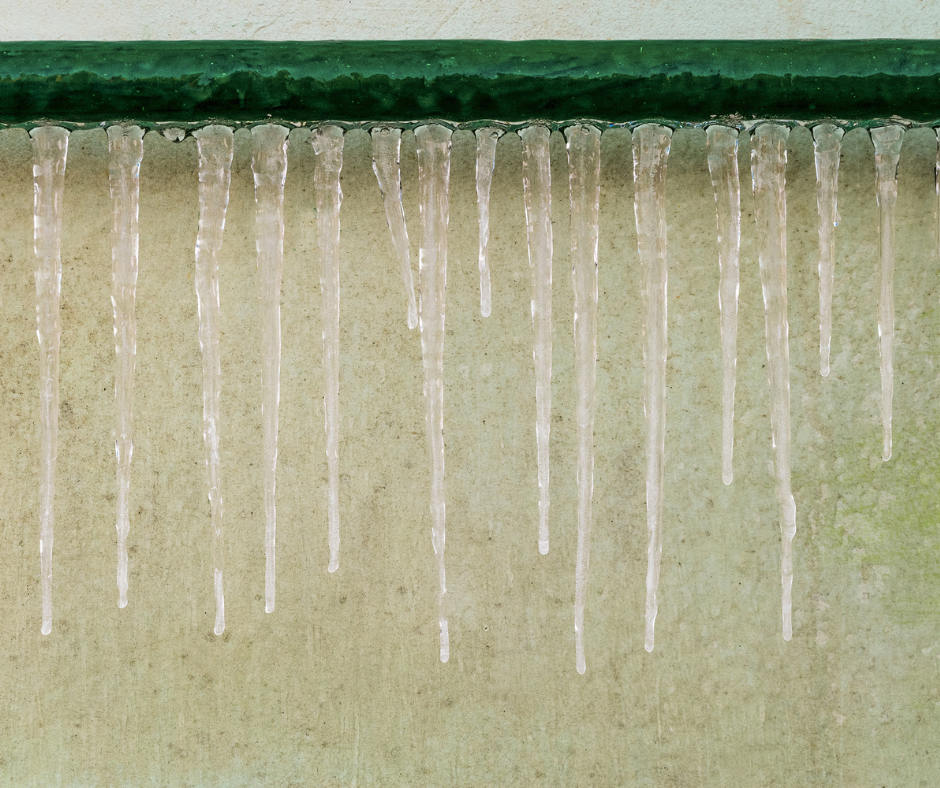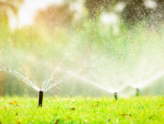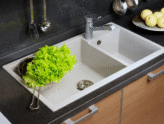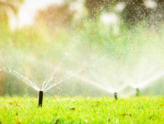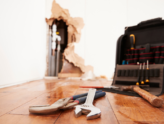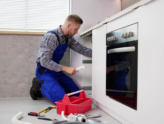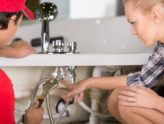A Step-by-Step Guide on What to Do If Your Pipes Freeze
A Durham Region winter can be tough on your plumbing system, especially if you’re not prepared for the cold snaps and sudden temperature drops that can freeze your pipes. The consequences of frozen pipes can range from a minor annoyance to a major disaster, causing inconvenience, damage, and the need for plumbing repairs or replacements.
In this article, we’ll walk you through a step-by-step guide on what to do if your pipes freeze. From recognizing the signs early to the safe ways to thaw a frozen pipe, we’ll cover everything homeowners need to know to address this common winter plumbing issue. Whether you’re a seasoned DIY enthusiast or looking for tips for your first home, understanding what to do when your pipes freeze is essential knowledge.
Signs of Frozen Pipes
Before you can take action, it’s crucial to recognize the signs of frozen pipes:
● No Water: If you turn on your faucet and nothing happens or the water comes out as only a trickle, this is a clear warning that your water pipes might be frozen.
● Frost: If there’s visible frost on the exterior of exposed pipes (or elsewhere in the system), it’s a sure sign of freezing or a frozen area of the pipe.
● Strange Smells: A musty odour might mean that water has started to trickle in areas it shouldn’t and could be a sign of a cracked or leaking pipe, causing mould and mildew.
● Odd Sounds: Also known as “water hammer,” these loud thuds occur as a result of expanding ice in a frozen pipe pushing water around in the confined spaces of your plumbing system.
Identifying Affected Areas in Your Plumbing System
Once you suspect that you might be dealing with winter plumbing issues like frozen pipes, the first step is to identify which pipes have frozen, follow these simple steps:
1. Start with the faucets in your home; a lack of water here could indicate a local freeze.
2. Move on to visually inspect exposed pipes, looking for frost or condensation that could suggest a frozen area.
3. If you have access to heavily insulated parts of your plumbing system, check for signs of bulging pipes – this can indicate ice expansion.
Immediate Actions for Homeowners
When you’ve pinpointed the frozen area, it’s time for immediate action to avoid burst pipes:
1. Turn Off Water: To prevent pressure buildup from frozen pipes shut off water from your main water supply pipes.
2. Open Faucets: Opening the faucet allows the water to flow and, hopefully, relieves the pressure that contributes to a burst pipe and lets the cold water drip as it’s released.
3. Warm the Area: Use safe, low-heat methods like a space heater to warm up the area they are in and thaw frozen pipes slowly.
4. Treat with Care: Avoid heating the area with an open flame or high-temperature heat source as it could damage pipes.
Frozen Pipe Thawing Techniques
Here’s what to do if you need to thaw frozen pipes:
● Keep the Faucet Open: As you start thawing frozen pipes, keep the faucet open to allow the ice to melt and a path for water to flow.
● Use Safe Tools: A hair dryer, space heater or an electric heating pad wrapped around a frozen section of pipe are safe techniques to try, but avoid high-temperature tools that could cause thermal stress on the pipes.
● Apply Heat to the Full Length of the Frozen Pipe: If possible, apply heat to the frozen pipe’s full length, working from the open faucet back to the cold water source.
Pipe Thawing Risks
In your efforts to thaw frozen pipes, it’s essential to steer clear of these risks:
● High-Temperature Sources: These can potentially cause the pipes to burst due to the rapid expansion of the thawing ice and can be dangerous when combined with potentially flammable materials.
● Cutting Corners: Don’t attempt shortcuts or quick fixes; thorough, proper thawing will get everything back to the same temperature and is vital to prevent further problems.
● DIY Solutions: While minor frozen pipes might be manageable, larger or harder-to-reach freezes do require professional handling.
When to Call Caldwell Plumbing for Help
Knowing when to call in the experts at Caldwell Plumbing can be the difference between a quick fix and a messy repair job and can even help to prevent your pipes from freezing in the first place. Our team is ready to help 24/7 in emergencies to keep your pipes clear:
● Stubborn Freezes: If you’re not seeing any progress after a while of thawing a frozen pipe, it’s time to call for professional help.
● No Access: For pipes that are within walls or underground, our team has the equipment to resolve the issue safely.
● Post-Thaw Inspection: One of our expert plumbers can inspect your system post-thaw to identify any leaks or damage and recommend preventative measures.
● Preventative Measures: Taking proactive steps to schedule maintenance or pipe insulation with the Caldwell Plumbing team can help prevent leaks or damage in winter and your pipes from freezing altogether.
Contact Us Today About Frozen Pipes
Frozen pipes are an inconvenience at best and a disaster at worst, and a quick response is the best way to reduce the risk of damage.
For more insights and professional plumbing services in Pickering and the surrounding areas of Durham Region, Caldwell Plumbing is here to support you when dealing with frozen pipes in cold temperatures. Our team is ready to help you solve your problem before it gets out of hand. Contact us today!
Frequently Asked Questions
As part of our commitment to providing valuable guidance for homeowners, we’ve compiled a set of common questions about frozen pipes.
What to Do if Your Pipes Freeze Overnight?
If you find your pipes have frozen overnight, it’s important to act quickly to prevent further issues. Begin by turning off the water supply to the affected area and then implement safe thawing methods, such as the ones covered above.
How Long Do Frozen Pipes Take to Thaw?
The time it takes for frozen pipes to thaw can vary depending on the extent of freezing, the temperature in the space, and the thawing method used. Generally, it may take several hours for pipes to fully thaw, especially if the freezing is substantial.
Will Frozen Pipes Unfreeze on Their Own?
Frozen pipes do not typically unfreeze on their own. Once pipes have frozen, they require specific actions to thaw safely and prevent potential damage or bursting.

